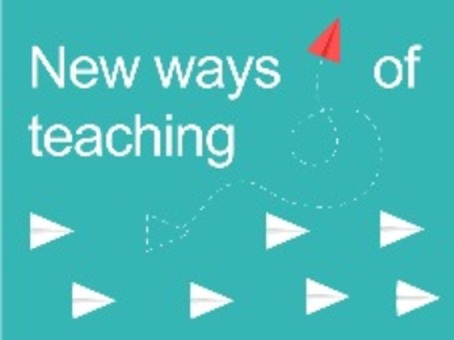Experience, reflection, and collaboration thanks to the EOR-Game

In New Ways of Teaching educators talk about their innovative, creative, and impactful teaching initiatives. From unusual teaching methods to new technologies—everything is covered. How do these ideas arise and what impact do they have on students? This month: the Econometrics and Operations Research (EOR) game, developed by Daniel Vullings.
How do you enable large groups of students to practise with complex problems? How do you demonstrate the links between different specializations within the degree programme? How do you apply the theory? Vullings bridged the gap between theoretical knowledge and practical application. He designed the EOR game — a simulation to challenge and motivate students, thereby stimulating a deeper understanding of EOR knowledge in a realistic setting. Over 300 students spend an average of 20-30 hours per year playing the game.
The game
The EOR game is a simulation game that is played in three course units, one for each year of the EOR Bachelor’s programme. Students must use the simulation to apply models and solve issues from all areas of the programme in order to efficiently manage a fictional beer brewery.
The students combine the data generated by the simulation with the mathematical models they are being taught in their course units, in order to make better choices within the simulation. During the first year, they discover how to deal with complex problems; during the second year, they begin to apply the theory from their course units; and during the third year, they will be able to apply the knowledge from the entire Bachelor’s programme in order to solve one major problem.
As Vullings has converted the EOR game into a digital format, students automatically receive feedback on their work, giving lecturers the opportunity to support students and give them additional personal feedback.
A software application for complex problems
Vullings has three objectives in mind with this project. He wants to give large groups of students the opportunity to practise solving complex problems, demonstrate the links between different specializations within the programme, and enable students to apply theory in practice.
Since the game is digital, it is possible to present a large problem in a clear and concise manner. Students can easily find the instructions, locate the underlying data, and make choices. This is how Vullings intends to achieve his objectives. In addition, lecturers do not have to worry about the design of the assignment because the game takes care of this, and they have less to check because the software provides feedback.
Different perspective
By playing the game every year, students’ perspectives constantly change and they are given the opportunity to delve deeper into the problem, try out different methods, and ultimately combine techniques from different disciplines to achieve better solutions.
Connection
By repeating the EOR game each year, students observe their own development and how the programme prepares them to tackle complex problems. Students see the links within the programme, and practise working together and presenting during the game. In addition to the educational benefits, the game also creates a stronger sense of community, especially during the first year, by bringing students together on campus and having them work together in groups.
Experience, reflection, and collaboration
Vullings’ students say that the game is a nice addition to the mainly theoretical course units in the programme. In the first year, they are often still finding their feet, but the game offers a great opportunity to apply newly learned programming skills. Second-year students indicate that they can see how much they have learnt and that the game gives them both a great opportunity to practise newly learned skills and to repeat skills from the first year. The students often lack experience in dealing with major problems, but the EOR game enables them to gain this experience. Students also mention that the game clearly shows that it is not always feasible to divide tasks and work independently, but that collaboration requires coordination and communication.
Further expansion
Following the success of the EOR game, Vullings is now also developing the Economics and Business Economics (E&BE) game. This game focuses on the E&BE Bachelor’s programme and simulates an economy in which students jointly take on the roles of households, businesses, governments, and financial institutions.
The TOGETHER consortium, a collaboration with the universities of Bern, Ghent, Tbilisi, and Uppsala, is also building on the EOR game. In this project, Vullings and his colleagues are developing a digital simulation game in which students from different disciplines, such as chemistry, economics, and law, work together to govern a city. Students work in multidisciplinary teams to solve problems faced by a company, city planner, or councillor, and coordinate their actions with groups of students who represent other stakeholders. In this way, students learn sustainability skills as defined by the European Commission in the Greencomp framework.
More news
-
15 September 2025
Successful visit to the UG by Rector of Institut Teknologi Bandung
